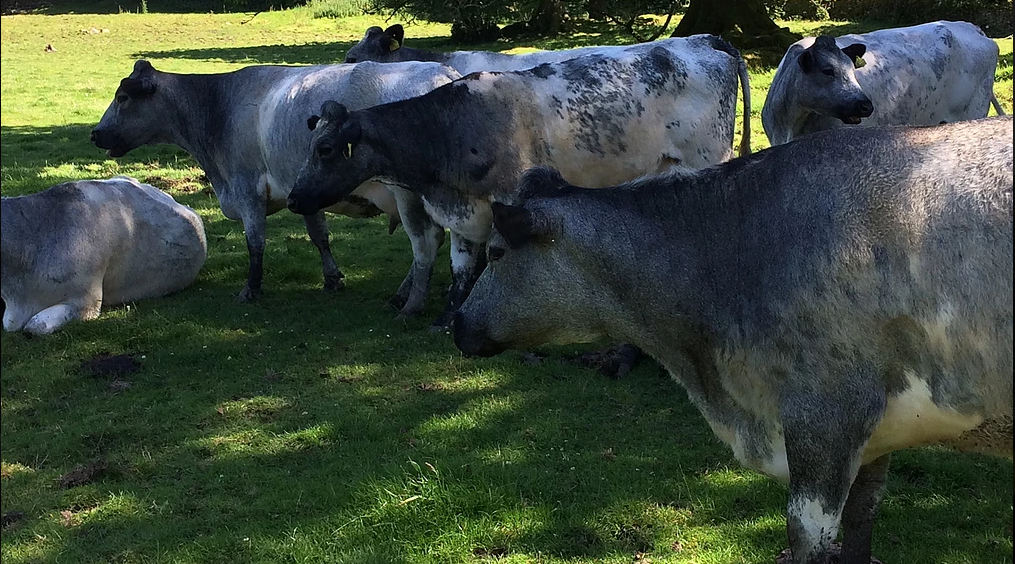Farmer and television host Adam Henson has a new project: saving the rare native Albion cattle from extinction.
There are only around 170 individuals of the breed remaining, and after a campaign by Henson and a group of breeders, Albion cattle have been placed on the Rare Breeds Survival Trust (RBST), with the aim of “securing their future in the British countryside”.
Now, Henson is attempting not just to prevent the breed’s disappearance, but also to breed them, at his Cotswold Farm Park near Cheltenham.
Conservation is at the heart of everything and when I heard about the fight by a small number of dedicated breeders to put the Albion back on the rare breeds map, I knew I needed to help. So I brought a bull and seven breeding cows to the Farm Park to establish our own foundation herd.
Henson bought seven cows from a farm dispersal sale in 2018 for breeding, six of which are in calf and will calve this coming summer.
“Fortune hasn’t been on our side, and breed numbers were devastated by a combination of the agricultural depression, changes in farming fashions and, worst of all, outbreaks of the dreaded Foot-and-Mouth disease in 1923 and again in 1967,” said Henson.
“It’s only thanks to a small number of never-say-die enthusiasts scattered around England, including in the Albion’s home county of Derbyshire, that we’ve got a breed at all,” he added.
According to the Albion Cattle Society, the breed was set to become a “major cattle breed”, until the 1923-1924 Foot-and-Mouth outbreak, which wiped out many herds.
The Foot-and-Mouth outbreak coincided with an agricultural depression, in which cattle prices fell dramatically; after that, dairy breeds became more popular, at the expense of dual-purpose breeds like the Blue Albion.
The Blue Albion Cattle Society was officially wound up in 1966, though it hadn’t had an Annual General Meeting for over 25 years prior.
The Albions have had a dramatic reversal of fortune since their heyday in the 1920s, but we hope that this recognition will herald the start of a new chapter for the breed.
Commenting on Henson’s ambitious plans, Gail Sprake, chairperson of RBST, said: “With production costs rising, as well as the emphasis on sustainable farming, these hardy traditional breeds that stay outside and feed on grass year-round may be a good bet for farming in the future.
“Consumers are also increasingly interested in what’s behind their food, and traditional breeds have a great story,” she concluded.

